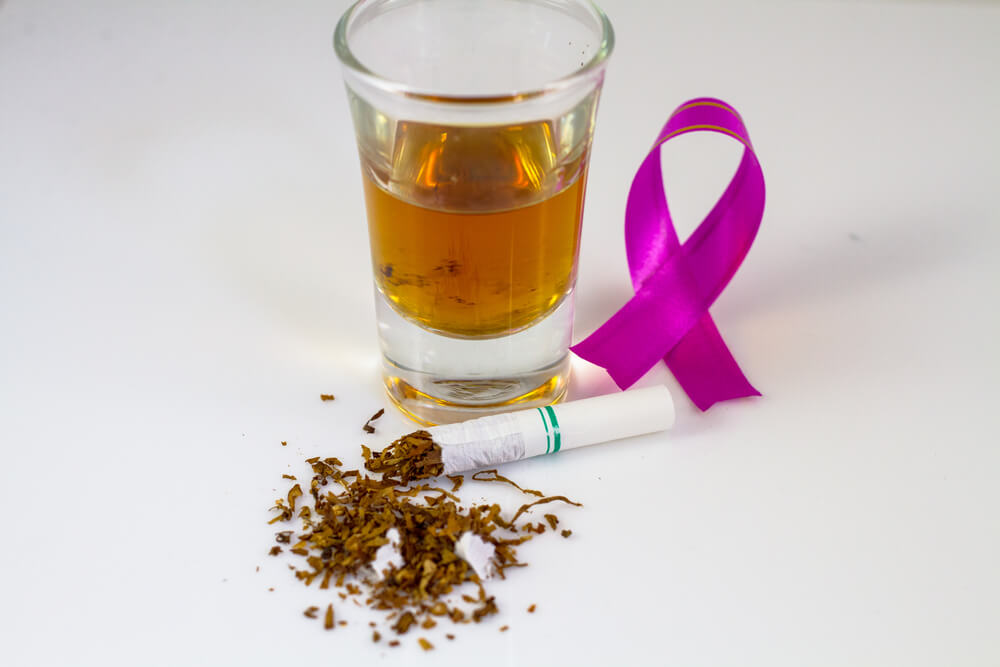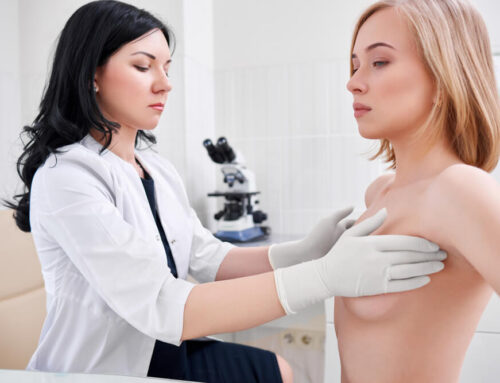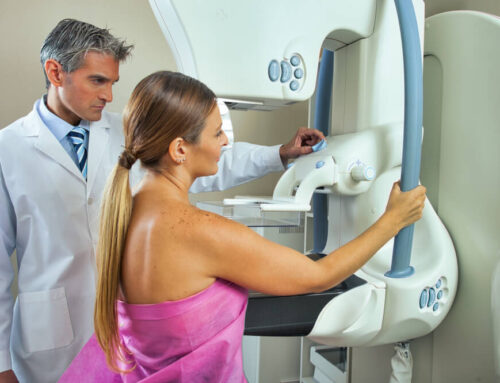In the pursuit of breast health, understanding the various factors that may contribute to the risk of breast cancer is paramount. One such factor that has garnered attention in recent years is the relationship between alcohol consumption and the incidence of breast cancer.
In this exploration, our professionals from Breast Care Center Miami and Pembroke Pines delve into the question: Does drinking alcohol increase your risk of breast cancer? The journey takes us through the intricate web of research, the link between alcohol and breast cancer, and the importance of informed choices in maintaining breast health.
The Link Between Alcohol and Breast Cancer: Unraveling the Science

Research has long sought to uncover the intricate connection between alcohol consumption and breast cancer. The evidence, while not definitive, suggests a noteworthy association that warrants attention. The phrase “Does alcohol increase breast cancer risk?” resonates in scientific discourse, sparking investigations into the mechanisms that may underlie this correlation.
Studies have shown that alcohol, when metabolized, can produce acetaldehyde, a known carcinogen. This substance has the potential to damage DNA and proteins, setting the stage for the development of cancerous cells. The intricate dance between alcohol and the cellular environment of the breast raises questions about the impact of regular and excessive alcohol consumption on breast health.
Breast Cancer and Alcohol: Weighing the Evidence
The phrase “breast cancer and alcohol” is often at the forefront of discussions surrounding lifestyle choices and their potential impact on breast health. Multiple studies have provided insights into the relationship between alcohol consumption and breast cancer risk. While the evidence suggests a correlation, it’s essential to approach this information with a nuanced perspective.
One key consideration is the dose-response relationship, emphasizing that the risk of breast cancer may increase with the amount of alcohol consumed. This reinforces the importance of moderation and prompts us to ponder the phrase “safe amount of alcohol.” Understanding what constitutes a safe level of alcohol consumption is a critical aspect of empowering individuals to make informed choices for their breast health.
Can Alcohol Affect Your Breasts? Exploring the Physiological Impact
Beyond the statistical correlations lies a deeper question: Can alcohol affect your breasts at a physiological level? The answer, researchers suggest, lies in the complex interplay between alcohol and hormones. Alcohol has been shown to increase estrogen levels, a hormone associated with the development and progression of certain types of breast cancer.
Furthermore, alcohol consumption may interfere with the body’s ability to metabolize and utilize essential nutrients, potentially compromising the overall health of breast tissue. This underscores the importance of considering not only the quantity of alcohol consumed but also its potential physiological impact on breast health.
Moreover, recent studies have shed light on another layer of complexity in the relationship between alcohol and breast health. Researchers have suggested that alcohol may impact the expression of specific genes in breast tissue, potentially influencing cellular functions. This genomic perspective adds a new dimension to the question of how alcohol affects breasts at the physiological level, emphasizing the need for comprehensive research to unravel the intricate mechanisms at play.
Additionally, the influence of alcohol on the immune system should not be overlooked. Chronic alcohol consumption has been linked to immune system suppression, which could potentially compromise the body’s ability to detect and eliminate abnormal cells, including those with the potential to become cancerous. Understanding these immunological implications broadens the discussion beyond hormonal factors, highlighting the multifaceted ways in which alcohol may impact breast health.
It’s essential to recognize that the physiological effects of alcohol on breast tissue are not uniform across individuals. Genetic variations, lifestyle factors, and overall health status contribute to the complexity of this relationship. Some individuals may be more susceptible to the physiological impact of alcohol on breast health, further emphasizing the importance of personalized approaches to understanding risk.
In this evolving landscape of research, the conversation extends beyond immediate concerns to long-term consequences. Chronic alcohol consumption, even at moderate levels, may have cumulative effects on breast tissue health over time. This emphasizes the need for ongoing studies that explore the potential implications of sustained alcohol consumption on breast health, providing a more comprehensive understanding of the risk factors involved.
Navigating the Grey Areas: The Complexity of Breast Cancer and Alcohol
While the link between alcohol and breast cancer is a topic of active research, it’s crucial to acknowledge the complexity of the relationship. Breast cancer itself is a heterogeneous disease with various subtypes, each influenced by distinct factors. The phrase “link between alcohol and breast cancer” encompasses a spectrum of considerations, including genetics, lifestyle, and individual susceptibility.
Understanding the nuances of this relationship requires a holistic approach that considers the unique characteristics of each individual. It’s not a matter of categorically condemning alcohol but rather fostering awareness about the potential risks and encouraging moderation as a prudent approach to breast health.
Drinking Responsibly: A Crucial Element in Breast Health

In the ongoing conversation about the potential link between alcohol and breast cancer, the concept of drinking responsibly emerges as a vital facet of maintaining breast health. Beyond the statistics and research findings, it prompts us to consider the phrase “safe amount of alcohol” not merely as a guideline but as a principle for informed and mindful choices.
Responsibility in alcohol consumption involves acknowledging individual tolerance levels and recognizing that moderation is a nuanced balance. It’s about understanding that the impact of alcohol on breast health may be influenced by various factors, including frequency, quantity, and individual metabolism. By being mindful of these elements, individuals can actively contribute to their overall well-being.
Moreover, responsible drinking encompasses a broader perspective on health. It involves considering the cumulative effects of alcohol over time and being aware of the potential interactions with other lifestyle factors. A holistic approach to health includes not only understanding the potential risks but also appreciating the broader context of overall well-being.
Making responsible choices regarding alcohol consumption is an empowering act. It involves cultivating an awareness of individual boundaries and making decisions that align with personal health goals. This mindful approach to drinking contributes not only to breast health but also to a lifestyle that harmonizes enjoyment with well-being.
In the delicate balance between savoring life’s pleasures and safeguarding health, the principle of responsible drinking becomes a compass. It guides individuals toward choices that are not only enjoyable in the moment but also respectful of their long-term health. Ultimately, by incorporating responsibility into their relationship with alcohol, individuals can navigate the complexities of breast health with a proactive and informed mindset, fostering a culture of well-being that extends beyond a single aspect of life.
Empowering Choices: Knowledge as a Tool for Breast Health
In the realm of breast cancer prevention, knowledge is a powerful tool. The phrase “safe amount of alcohol” takes center stage, prompting individuals to reflect on their lifestyle choices and make informed decisions. Breast health is a holistic endeavor, and recognizing the potential impact of alcohol consumption is a step toward fostering a culture of proactive well-being.
As we navigate the dynamic landscape of breast health, the question of whether drinking alcohol increases the risk of breast cancer remains a pivotal one. The evolving body of research invites us to stay informed, cultivate awareness, and empower ourselves and others to make choices that contribute to the overall well-being of our breasts. In the delicate balance between enjoying life’s pleasures and safeguarding our health, knowledge becomes the compass guiding us toward the path of optimal breast health.
That said, if you would like to learn more about how alcohol consumption affects breast health, feel free to schedule an appointment with our experts. These professionals are more than happy to answer all of your concerns and questions.






